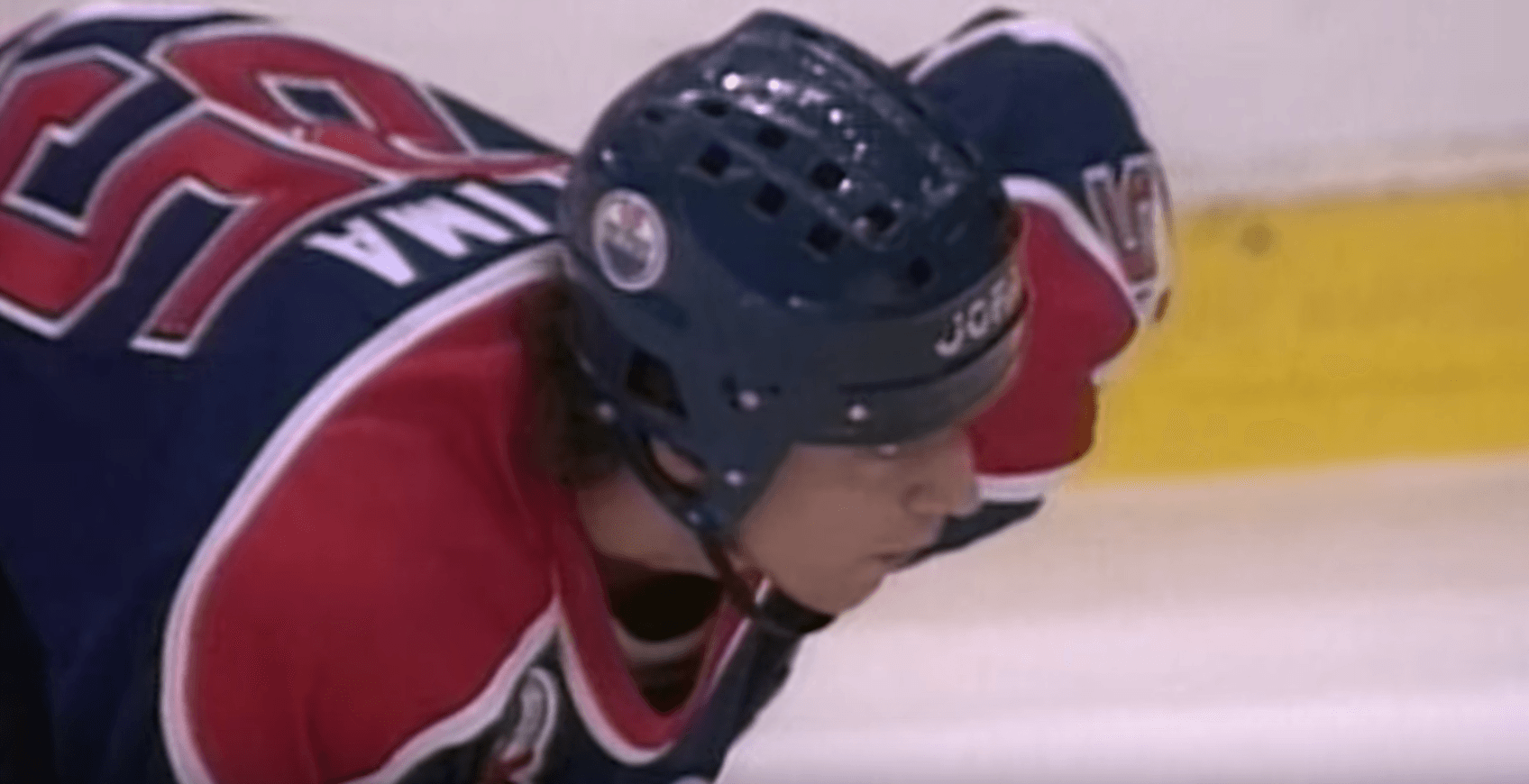In order to celebrate the Edmonton Oilers’ 40-year anniversary AND distract ourselves during this hockey-less nightmare, we’ll be re-living 40 amazing moments from Oilers history. Today, we have Petr Klima becoming the hero in triple-overtime in Game 1 of the 1990 Stanley Cup Final.
Jari Kurri, Fernando Pisani, and Petr Klima. What do these guys have in common? They’re the only three players who have scored an overtime goal for the @Edmonton Oilers in the Stanley Cup Final.
There’s Kurri, the legendary Finnish goal-scorer who was a key part of all five of Edmonton’s Stanley Cup victories and there’s also Pisani, the local kid who caught fire in 2006 to help the Oilers make their Cinderella run to the Cup Final. Finally, there’s Klima, the enigmatic winger who, after a long time watching from the bench, became an unlikely hero in the longest Stanley Cup Final game in league history.
Take a look at all of the overtime goals scored in playoff and Stanley Cup Final history. It isn’t always star players like Kurri or Patrick Kane or Brett Hull scoring these goals, players like Klima and Alec Martinez and Carl Gunnarsson can come out of the blue and form legacies instantly in overtime. That’s what makes playoff overtime goals so great. You can make a hero out of the most random, unexpected player.
Klima’s overtime heroics came in Game 1 of the 1990 Stanley Cup Final, a place most didn’t expect the Oilers to be.
“Underdog” wasn’t a title the Oilers were used to having, but that’s what they were after Peter Pocklington traded Wayne Gretzky in the summer of 1988. With The Great One out of the picture, the Oilers were no longer the unstoppable force they were during their glory days.
In 1988-89, their first season in the post-Gretzky era, the Oilers posted a 38-34-8 record, their worst result since their first two years in the league. To make matters worse, they would go on to lose to Gretzky’s Los Angeles Kings in the first round of the playoffs, blowing a 3-1 series lead in the process. The loss forced the idea that the Oilers were no longer a real threat without Gretzky.
The following season, the Oilers set out to dispel that narrative. Behind a Hart Trophy-winning season from Mark Messier and breakout play from youngsters like Bill Ranford and Craig Simpson, Edmonton finished with a much-improved 38-28-14 record.
They took down the Winnipeg Jets in the first round of the playoffs, coming back from a 3-1 series deficit to win a decisive Game 7. Next up, they slew the dragon by sweeping Gretzky and the Kings in four games. The Oilers would go on to beat the Chicago Blackhawks in six games, setting up a Stanley Cup Final with the Boston Bruins.
Though the Oilers had certainly proved they were still a strong team even without Gretzky, they were an underdog to Cam Neely, Ray Bourque, and the Bruins, who finished with a 46-25-9 record to win the Presidents’ Trophy.
In Game 1, the Oilers set the tempo by getting off to a 2-0 lead in the first period. Adam Graves and Glenn Anderson fired shots past a familiar face, Andy Moog, who had been traded to the Bruins a few years earlier so that he could finally be a starter after years of backing up Grant Fuhr. On the other side was Ranford, who the Oilers got back in return for Moog. The 23-year-old Ranford was playing his first season as an NHL starter as Fuhr had suffered a season-ending injury earlier in the year.
Though Edmonton carried the early lead, it was Boston who was carrying the play. In the third period, they finally broke through Ranford. A few minutes into the third, Ray Bourque made the game 2-1, and then, with under two minutes left on the clock, Bourque tied things up with his second of the night.
Two overtime periods didn’t solve anything, so the Oilers and Bruins entered a third extra frame to decide a winner. In the third overtime, there was a power outage at the Boston Gardens, resulting in a play stoppage that lasted for 25 minutes. All told, the game went on for over five hours including the play stoppage, with 115:13 of actual play before somebody finally scored.
With under five minutes to go in the third overtime, under 30 seconds after it had officially become the longest Stanley Cup Final game ever played, Petr Klima finally ended it.
Klima had spent a good chunk of the game on the bench because of how poorly he had been playing and because head coach John Muckler couldn’t trust his efforts in the defensive zone. So when everybody else was exhausted from essentially playing two games, the Czech winger still had fresh legs.
Muckler had a gut-feeling that Klima could redeem himself, so he finally pulled him off the bench. The decision turned out to be the right one as Klima became the hero that nobody expected, scoring one of the biggest goals in Oilers franchise history.
Edmonton would go on to win the series in five games, clinching their first and only Stanley Cup in the post-Gretzky era. Many Oilers fans will say this was the best out of the five because the team rose back up after the crushing loss of trading away Gretzky. Feeling like an underdog always makes it more special.
“I think the players felt pretty strongly that there was still a large nucleus of the team still in place, but nobody expected us to win another Stanley Cup,” Bill Ranford told NHL.com. “That just showed the amount of determination that the group had to prove everybody wrong.”

